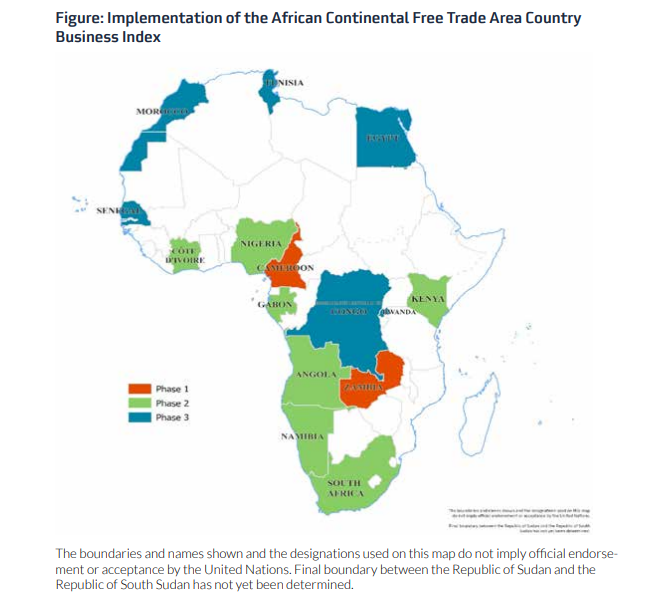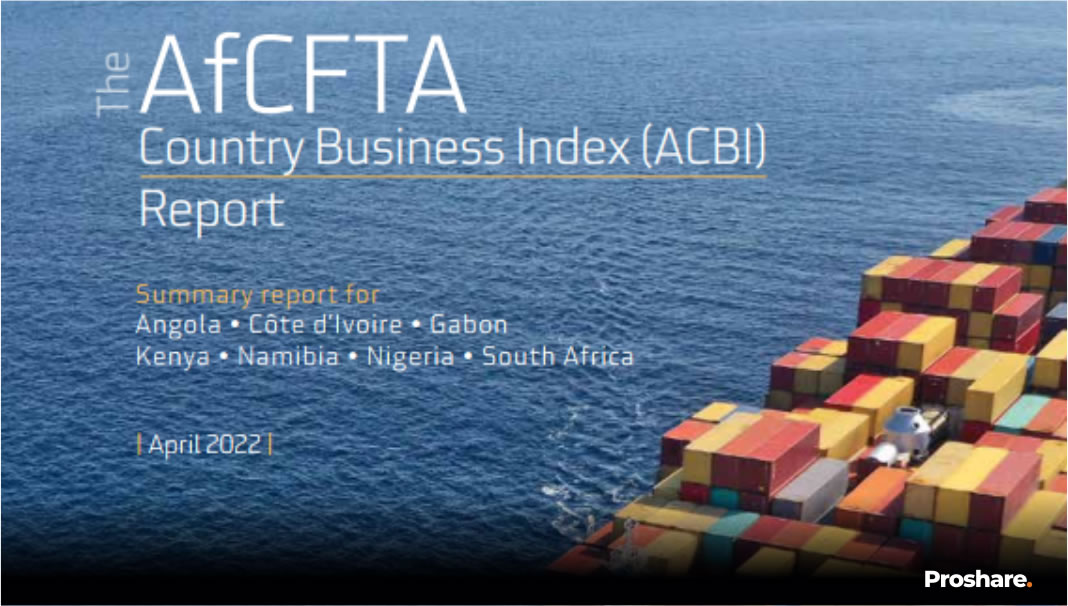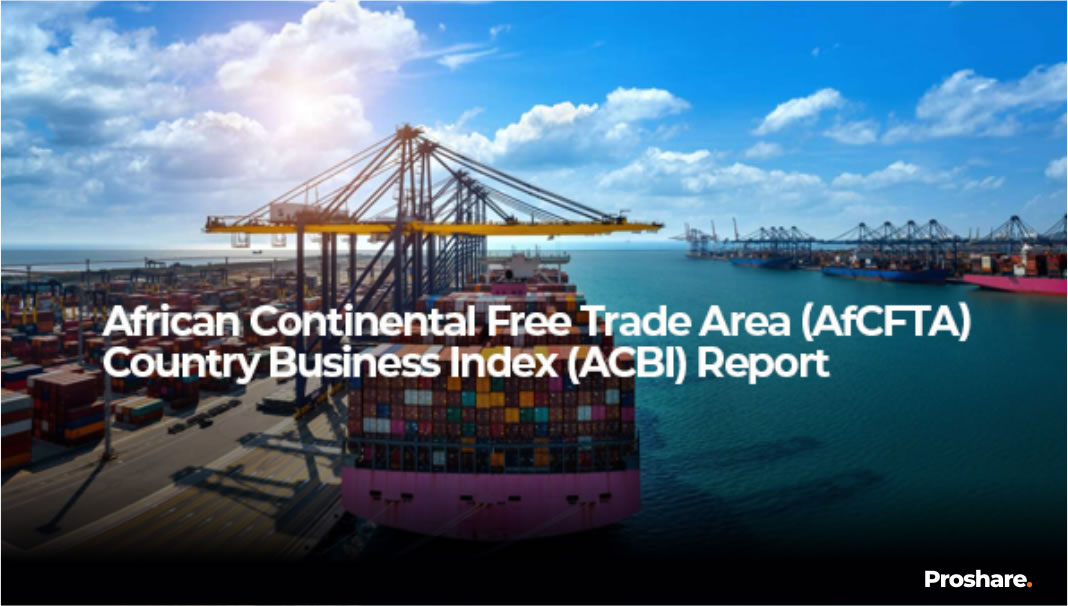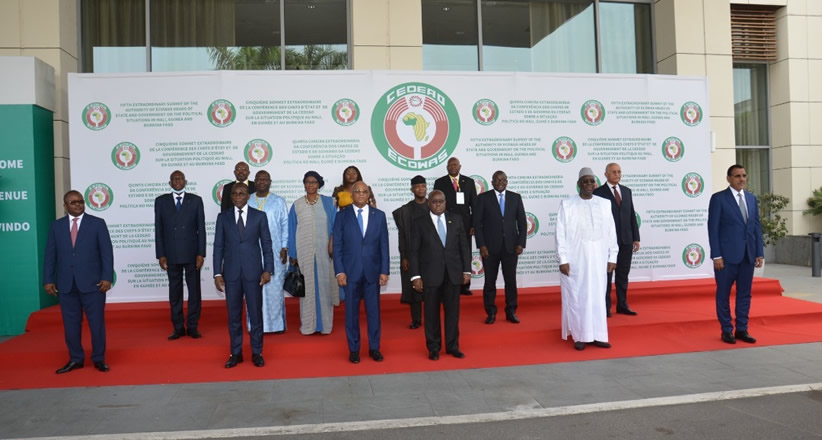Thursday, May 19, 2022 / 01:35 PM / by UNECA / Header Image Credit: UNECA
Background
The Agreement Establishing the African Continental Free Trade Area officially became operational in 2021, making it the cornerstone of trade integration in Africa. The objectives of the Area are to create a single, continent-wide market and to enhance competitiveness at the enterprise level. The African Continental Free Trade Area Country Business Index is the first comprehensive tool based on a robust methodological framework in which data are collected in a way that allows businesses to express their views on implementation of the Area.
Following the launch of the Index in 2018, the Economic Commission for Africa began piloting and refining it as a tool to measure and compare the views of businesses across Africa on implementation of the Area. The figure below shows the countries selected for the three phases of the pilot study. After phase 1, which was conducted in Cameroon and Zambia, the methodology was refined and surveys were conducted in seven more countries: Angola, Côte d’Ivoire, Gabon, Kenya, Namibia, Nigeria and South Africa. The present report includes results from this second phase of the roll-out. In the third phase, the Index will be rolled out in the Democratic Republic of the Congo, Egypt, Morocco, Rwanda, Senegal and Tunisia

Approach and Methodology
The Index differs from other integration indices, since it is informed entirely by private-sector perceptions, not by secondary data, making it truly representative of African business. The Index is unique in that it focuses on African integration by targeting businesses based in and trading (and investing) across African countries.
Information was obtained through a survey, which included demographic data on each business to allow for segmented analysis of the survey results and sample quota targeting. The responses were anonymized to ensure that firms could not be identified based on their responses. The survey of businesses was primarily undertaken online but, was supplemented by telephonic and face-to-face interviews where necessary
A key focus of the Index is to show how the business sector perceives trade under the free trade agreements that are already in force across African countries. Since it focuses explicitly on the constraints and challenges faced by private businesses, the following main objectives of the Index can be used to distil and identify key challenges that the private sector faces in its cross-border activities.
(a) To measure, based on the views of the private sector, the extent to which broader developments related to integration and trade have been implemented;
(b) To understand the business sector’s perceptions of trading under free trade agreements already in force in African countries;
(c) To assess the perceived impact of the African Continental Free Trade Area on the private sector’s ability to trade and invest across African borders once the Area is operational.
Main Results
The average score for the phase-2 countries shows that, overall, businesses in those countries have a neutral perception of the environment for investing and trading in goods across African borders. Firms have a neutral to slightly negative overall perception of the environment for investing and trading in goods across Africa. For the private sector to fully benefit from the African Continental Free Trade Area, businesses need to be supported in identifying strategic interests and market opportunities.
In all phase-2 countries, the private sector has a negative perception of trade in goods, which suggests that further work needs to be done to remove tariff and non-tariff barriers. The Area could be used to help to reduce these barriers. In most of these countries, firms appear to have particularly negative perceptions of unauthorized charges, customs procedures and additional fees.
The results also shed light on how small and medium-sized enterprises perceive trading from Africa and across Africa. Small and medium-sized firms had more positive perceptions than large businesses in most pillars, including customs administration, technical barriers to trade, sanitary and phytosanitary measures, and specific limitations on trade. They considered that custom duties were the main barrier to trading goods. The Index could therefore be used to better inform trade policy and to guide measures that could help to enhance the participation of such enterprises in the Area.
At the dimensional level, the average score reveals that the phase-2 countries had the best perceptions in respect of dimension 2 (awareness and use of free trade agreements), followed by the commercial environment and then goods re- strictiveness and costs. The areas related to trade in goods seem to significantly impair trade within Africa. Particular attention should be given to addressing unauthorized charges and other charges on trade,1 as they are perceived as the aspects that most restrict trade. Firms seem to have the most positive perception of sanitary and phytosanitary measures and technical barriers to trade.
For dimension 2, which relates to awareness and use of free trade agreements, the findings suggest that firms are more aware of their country’s membership in subregional agreements than they are of their country’s participation in the African Continental Free Trade Area. Only 64 per cent of firms across all phase-2 countries indicated that they were aware of their country’s participation in the Area,2 which suggests that more needs to be done at the country and subregional levels to raise awareness of the Area and its mechanisms of operation and to inform businesses of its potential benefits.
The Index scores vary across countries, reflecting different perceptions by the business sector. The national implementation strategy for the Area should be informed by domestic firms’ perceptions of the main challenges to trading and investing in the Area. In Namibia, Nigeria and South Africa, firms reported relatively positive perceptions of awareness and use of free trade agreements compared with other dimensions, but firms in Angola, Côte d’Ivoire and Gabon reported more positive perceptions of the commercial environment.
Complying with the rules-of-origin requirements of a free trade agreement was perceived as the most restrictive aspect of trade. This can partly be explained by the difficulty of conforming to the rules, which can be particularly onerous for informal traders and women-owned businesses and need to be simplified. In terms of using existing African free trade agreements, the dimensions for which firms in all the countries had the least positive perceptions were the ease of use of rules of origin and access to information on those rules. This shows that, although several regional free trade agreements have existed for many years, their use by the private sector can be hampered by laborious and overly complicated administrative burdens, which make them expensive to use. Simplified rules of origin could increase the use of existing agreements and allow deeper value-chain integration to develop across borders.
Regarding dimension 3, on the commercial environment, the findings suggest that firms across all seven countries have a relatively neutral perception of the overall policy regimes for services, investment, intellectual property rights and competition. This can be explained by the fact that negotiations on trade in services and other new-generation issues are at a very early stage. The results for this dimension show that negotiators and policymakers can improve the private sector’s perceptions of the business environment by focusing on policies that facilitate access to African markets, harmonize regulations related to the commercial environment and reduce the cost of core services.
There is a clear distinction in perceptions between men-owned and women-owned businesses, with the latter finding trading across borders more challenging. African countries should therefore design specific policy responses to support the gender-inclusive implementation of the Area. Across all seven sub-indices of the goods restrictiveness and costs index, women-owned businesses perceived these areas as more challenging than men-owned businesses.
Key Policy Recommendations
The Index provides a monitoring and evaluation tool for member States to understand the challenges encountered by businesses in implementing the African Continental Free Trade Area. There is momentum to institutionalize the use of the Index to inform national and regional strategies for the Area, since the expected positive impact of the Area on inclusive development and shared prosperity for all Africans requires the private sector to be actively involved.
Private-sector perceptions of trade in goods are below neutral in Angola, Côte d’Ivoire, Gabon, Kenya, Namibia, Nigeria and South Africa. Firms in most countries have slightly positive perceptions of technical barriers to trade and sanitary and phytosanitary measures, but strongly negative perceptions of other charges, unauthorized charges, customs tariffs and procedures in supporting trade. This result suggests that trade policy measures need to be implemented at the national and continental levels to remove tariff and non-tariff barriers. Such measures could be applied through the effective implementation of the Area in line with private-sector expectations.
The survey results reveal that women-owned firms are disproportionately impeded by these aspects of trading regimes when investing and trading goods across African borders. In particular, women-owned businesses are more negatively affected by tariff and non-tariff barriers. Most small and medium-sized enterprises in Africa are women-owned, so it is important to ensure that there are national and continental regulatory frameworks that allow them to participate in an efficient, effective and competitive way.
From a policy perspective, complementary measures need to be taken to support women traders and women-owned small and medium-sized enterprises to make trade under the Area more inclusive for them. With this end in mind, policymakers should give special attention to addressing the challenges faced by women-owned businesses in trading across borders, with particular emphasis required on understanding and improving the perceptions of women-owned firms of additional and unauthorized charges, customs tariffs and customs procedures, which are currently well below neutral and more negative than the perceptions of men-owned firms. Enhancing the participation of women (and young people) in the overall economy is imperative to make the Area more inclusive and development more sustainable.
The findings significantly contribute to achieving the 2030 Agenda for Sustainable Development and Agenda 2063: The Africa We Want, of the African Union, by identifying bottlenecks in trade regimes that need to be addressed to make trade under the Area more inclusive. It is critical for Governments to adopt specific policy measures that will support women to ensure that they participate actively in intra-African trade and investment.
Africa can use the benefits of the Area to boost intra-African trade by 26 per cent by 2045 only by engaging actively with the private sector to ensure the successful implementation of the Area. The firms surveyed were strongly aware of their country’s participation in various regional economic communities, but less aware of their country’s participation in the Area.
The results of the survey suggest that it is urgent to raise awareness of the opportunities of the Area and its mechanisms at the national and continental levels. This can be achieved through deeper engagement with the private sector and business associations when country and regional implementation strategies are developed and, subsequently, through wider dissemination of the strategies once they have been developed to create the necessary incentives for businesses. Another important measure is for countries to develop a national communication strategy for the Area’s development avenues as part of their investment promotion policies to support the Area and in line with Agenda 2063. At the operational level, the Index report highlights that it is crucial to simplify administrative procedures to facilitate doing business from and across Africa.
 Lagos, NG • GMT +1
Lagos, NG • GMT +1











 381 views
381 views










 Sponsored Ad
Sponsored Ad
 Advertise with Us
Advertise with Us









